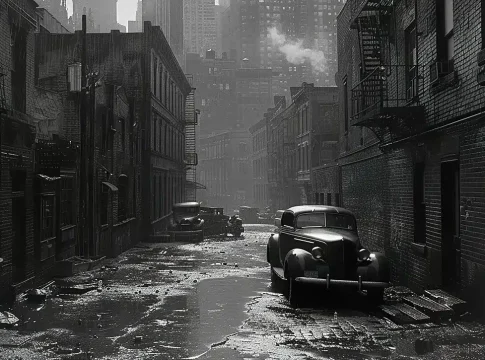The Enigmatic Legacy of Fitz-James O’Brien: A Literary Ghost Come to Life
If you’ve ever marveled at the dark, twisty worlds of Edgar Allan Poe or Nathaniel Hawthorne, get ready to add another name to your spooky bookshelf: Fitz-James O’Brien. Dubbed “the Celtic Poe” in a 1920 homage, this label does more than flatter; it misplaces. O’Brien, though Irish by birth, was thoroughly American in spirit, leaving behind a literary tapestry that defies boundaries and genres.
A Colorful Life Cut Short
Dying at just 34 due to wounds from the American Civil War, O’Brien’s life was short but wildly impactful. Born in Ireland and later claiming the title of American writer with gusto, he deftly navigated the bustling streets of mid-19th-century New York, turning the gritty backdrop into a stage for his imaginative wanderings.
His body of work is nothing short of impressive: nearly 300 short stories, many published anonymously. Yet, during his lifetime, O’Brien never released a book, and his writing became more myth than accessible text. The first collection didn’t appear until 1881, and it was anything but complete. Fast forward to now, and the Swan River Press has finally put together a comprehensive three-volume set titled The Collected Speculative Fiction of Fitz-James O’Brien.
Rediscovering a Lost Voice
Edited by John P. Irish, these volumes are literary archaeology at its finest, digging deep to unearth O’Brien’s obscured genius. Irish serves not only as editor but as a passionate advocate for O’Brien’s rightful place in the literary landscape. This new collection assembles stories that range from ghostly tales to early sci-fi, creating a coherent picture of an artist who boldly roamed between genres.
Imagine O’Brien as the quirky lovechild of Poe and a Victorian Borges, but with a more playful twist. His early work often weaves between romantic nationalism and fragmented storytelling, evident in pieces like Fragments from an Unpublished Magazine—a postmodern experiment decades ahead of its time.
A Duel of Dual Identities
O’Brien’s themes reflect the immigrant experience, blending Irish and American influences. His poetry and plays—like the wildly popular A Gentleman from Ireland—proclaim a deep connection to his roots while simultaneously embracing his new homeland. It’s this dual identity that makes his work resonate, making him a pioneer of urban fantasy and speculative fiction.
Don’t let those Poe comparisons fool you; while they share an interest in the weird, O’Brien’s outlook was much broader. Where Poe delved into claustrophobia and internal terror, O’Brien’s tales burst forth with cosmopolitan whimsy and comedic elements. His narratives vibrate with life, from urban ghouls to sci-fi escapades, ultimately capturing the chaotic essence of America itself.
A Resurgence of Recognition
With this new collection, the curtain’s lifted off the enigmatic O’Brien. He’s no longer just a ghost in the literary ether; he’s being revived and acknowledged as a vital player in 19th-century fantasy literature. The sweeping scope of these volumes paints a picture of O’Brien not just as an artist but as a Renaissance man—a vibrant storyteller whose creativity knew no bounds.
As readers dive into the pages of O’Brien’s Collected Works, the contradictions are fascinating. He stands as both a major literary figure and an overlooked gem, a prophetic voice lost to time but now resonating anew. This latest edition is a crucial reminder that sometimes the most intoxicating tales are the ones hidden in shadows, waiting for the right moment to shine.
So, if you’re ready for a thrilling literary adventure that vibes with both ghostly whispers and bohemian flair, it’s time to get acquainted with Fitz-James O’Brien. His work is now more visible—and infinitely more alluring—than ever!

Covers viral stories, pop culture, and breaking celebrity news.
Bio: Jamie has a sharp eye for what’s buzzing online, tracking social media trends and entertainment headlines around the clock.

